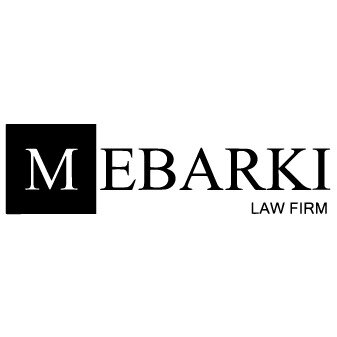Best Art & Cultural Property Law Lawyers in Algeria
Share your needs with us, get contacted by law firms.
Free. Takes 2 min.
Or refine your search by selecting a city:
List of the best lawyers in Algeria
About Art & Cultural Property Law in Algeria
Art & Cultural Property Law in Algeria revolves around the preservation, protection, and regulation of the country's rich cultural assets, including artifacts, works of art, and heritage sites. The legal framework is designed to ensure that these cultural properties are safeguarded from illicit trade and degradation. Algeria, being home to a diverse cultural heritage, has enacted various laws to manage and protect its cultural properties in compliance with international conventions such as UNESCO’s conventions.
Why You May Need a Lawyer
Consulting a lawyer with expertise in Art & Cultural Property Law in Algeria is crucial for several reasons. Individuals, organizations, and institutions may require legal advice in scenarios such as:
- Buying or selling artworks, where authenticity and provenance must be confirmed.
- Seeking restitution of illegally exported or stolen cultural assets.
- Navigating legal disputes involving intellectual property rights of artworks.
- Applying for permits to export or import cultural items.
- Understanding compliance with local and international laws related to cultural patrimony.
- Negotiating loans or donations of cultural property to museums or galleries.
Local Laws Overview
Algeria has implemented laws and regulations tailored to safeguard its cultural heritage. Key aspects include:
- Law No. 98-04 of June 1998 on the Protection of Cultural Heritage: This legislation provides comprehensive regulations concerning the protection and management of tangible and intangible cultural heritage in Algeria.
- Regulations concerning the export and import of cultural property, which require specific permits to prevent the illegal trade of cultural assets.
- The involvement of government bodies like the Ministry of Culture in overseeing and enforcing cultural heritage protection laws.
- Adherence to international agreements, including UNESCO’s conventions, aimed at preventing the illicit trafficking of cultural property.
Frequently Asked Questions
What laws protect cultural property in Algeria?
Algeria's Law No. 98-04 of June 1998 is the primary legislation that governs the protection of cultural heritage in the country.
Can art and cultural items be legally exported from Algeria?
Yes, but you must obtain proper permits and adhere to strict regulations that ensure the items are not of cultural or archaeological significance.
How can I prove the legality and provenance of an artwork?
Provenance can be verified through documents demonstrating an artwork's history, including bills of sale, certificates of authenticity, and ownership records.
What should I do if I suspect cultural goods are being traded illegally?
You should report such suspicions to the Ministry of Culture or law enforcement agencies helped with cultural property.
Are there tax implications for donating art to a museum in Algeria?
Legal advice should be sought as tax implications can vary based on the donor’s residence status and the nature of the donation.
Is it possible to recover cultural property that has been unlawfully removed from Algeria?
Yes, recovery procedures exist, often involving diplomatic and legal efforts, and international cooperation through conventions like UNESCO's.
How are disputes about art ownership resolved in Algeria?
Disputes are typically resolved through mediation or litigation in Algerian courts, applying relevant cultural property laws.
What international conventions influence cultural property law in Algeria?
Algeria adheres to key conventions such as UNESCO's 1970 and 1972 Conventions on cultural property protection.
What is considered cultural property under Algerian law?
This includes artifacts, monuments, works of art, manuscripts, and other items of historical, artistic, or archaeological significance.
Can artists protect their work under cultural property laws?
Artists can protect intellectual property rights through copyright laws, which may intersect with cultural property regulations.
Additional Resources
Here are some organizations and governmental bodies that may provide assistance:
- Ministry of Culture, Algeria: Central authority for cultural heritage protection.
- Algerian National Centre for Archaeological Research: Conducts research and provides guidance on archaeological sites.
- UNESCO Office in Algeria: Offers resources and advice on international conventions relevant to cultural property.
- Local attorneys specialized in Art & Cultural Property Law for personalized legal advice.
Next Steps
If you require legal assistance in Art & Cultural Property Law, consider the following steps:
- Identify the specific issue you need help with, such as permits, ownership disputes, or recovery of property.
- Gather relevant documentation that can support your case, including provenance records or ownership papers.
- Seek a consultation with a lawyer specializing in Art & Cultural Property Law in Algeria to understand your rights and obligations.
- Engage with local cultural institutions for advice or referrals to legal experts in the field.
- Stay informed about changes in local laws and international conventions that might affect your situation.
Lawzana helps you find the best lawyers and law firms in Algeria through a curated and pre-screened list of qualified legal professionals. Our platform offers rankings and detailed profiles of attorneys and law firms, allowing you to compare based on practice areas, including Art & Cultural Property Law, experience, and client feedback.
Each profile includes a description of the firm's areas of practice, client reviews, team members and partners, year of establishment, spoken languages, office locations, contact information, social media presence, and any published articles or resources. Most firms on our platform speak English and are experienced in both local and international legal matters.
Get a quote from top-rated law firms in Algeria — quickly, securely, and without unnecessary hassle.
Disclaimer:
The information provided on this page is for general informational purposes only and does not constitute legal advice. While we strive to ensure the accuracy and relevance of the content, legal information may change over time, and interpretations of the law can vary. You should always consult with a qualified legal professional for advice specific to your situation.
We disclaim all liability for actions taken or not taken based on the content of this page. If you believe any information is incorrect or outdated, please contact us, and we will review and update it where appropriate.
Browse art & cultural property law law firms by city in Algeria
Refine your search by selecting a city.









